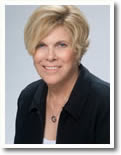The Apostrophe Fail
By Kathy Sieckman, PP, PLS, ACP
I think the number one all time grammar fail is the apostrophe. It is not a punctuation mark for making words plural (more than one of something). Instead, it is a mark to show possession (ownership of something) or to show where letters are missing in a contraction (such as "don't").
There is a test that may make it a little easier to determine if something needs an apostrophe for possession:
- Look for the possible possessive phrase:– the man['s] desk
- Reverse the nouns: desk of the man
- Examine the base ownership word to determine who owns the thing (here "man").
Does the base word showing ownership end with an "s" sound? If it does not, add an apostrophe and s: the man's desk. If it does, you usually add only an apostrophe: both boys' desks.
UNLESS you actually hear the s sound when you say it, then you should add an apostrophe and s: Phoenix's traffic or Waitress's tables. That is a really important "unless" and one that is controversial. Say it out loud if necessary.
Again, however, while it may be correct under one reference source, the person you are working for may not like it that way. Do what you need to do to stay employed.
Proper names are sometimes the most difficult. I once worked with someone with the last name "Andrews" and actually saw (with my own eyes) how people (and more than one) would try to make it possessive by adding the apostrophe before the s—Andrew's. Never, ever change the spelling of someone's name before you make it plural or possessive. Start with the name and then do what you need to do to it. Just remember that is one thing that is sacred to everyone—their own name.
Apostrophes really are not as difficult as they seem to be when you see how often they are used incorrectly. It is just something that takes thinking about to get right. Take the time to think about it and you are a step ahead of most people.
~~~~~~~~~~
This article was contributed by Kathy Sieckman, PP, PLS, ACP. Kathy has worked in the legal field for over 30 years and developed an interest in grammar while studying for her first NALS certification exam. She honed that skill through lots of proofreading for her law firm employers. Kathy is involved in all levels of NALS . . . the association for legal professionals, works in the Phoenix office of Sacks, Ricketts & Case LLP, and has a proofreading blog at http://proofthatblog.com.
















